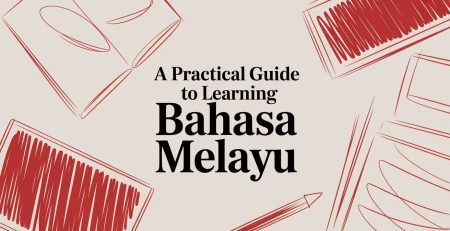How to Learn French on Your Own and Actually Succeed
Learning French on your own is less about raw talent and more about building a smart, sustainable system from day one. It all starts with setting clear, personal goals and crafting a flexible schedule that actually fits your life, not the other way around. Once that’s in place, you can start tackling the foundational sounds and greetings with real confidence.
Building Your Foundation for French Fluency
Before you even dream of debating French philosophy or tackling complex grammar, you need to lay the groundwork. Think of it like building a house – a weak foundation means the whole structure is at risk. It’s the same with learning a language. Taking the time to figure out your "why," understand how you learn best, and create a realistic plan is what separates those who make consistent progress from those who give up after a month.
This first phase isn't about memorising verb tables; it’s about creating the right mindset and structure to succeed on your own terms.
Find Your Personal "Why"
So, why French? Your answer to this is the fuel that will keep your engine running when things get tough. A generic goal like "I want to be fluent" is just too vague and, frankly, a bit demoralising. Instead, you need to get specific and make it meaningful to you.
Maybe your goal is to hit a solid A2 level on the CEFR scale so you can confidently navigate Paris on your next holiday. Or perhaps it's a career move. The demand for language skills in Singapore is definitely growing, and French can give you a real edge. In fact, French accounts for about 18% of foreign language job opportunities, making it a valuable addition to your CV.
My advice? Make your motivation tangible. Write it down. Whether it’s ordering a pain au chocolat in flawless French or nailing a job interview, a clear goal gives you direction and a reason to show up every day.
Carve Out a Realistic Learning Schedule
Consistency will always beat intensity. You don't need to block out two hours every day—for most of us with busy lives in Singapore, that's a one-way ticket to burnout. A much smarter approach is to find small, manageable pockets of time that you can consistently dedicate to French.
Here are a few ways I’ve seen this work brilliantly:
- Embrace the Commute: Use your MRT ride to listen to a 15-minute French podcast or knock out a quick lesson on an app. It adds up.
- Habit Stacking: Attach your French practice to something you already do without thinking. For example, review flashcards for 10 minutes while your morning coffee is brewing.
- Time Blocking: If you need more structure, block out three 30-minute sessions in your weekly calendar. Treat them like any other important appointment.
The best schedule is the one you can actually stick to. It’s far better to study for 20 minutes five days a week than to cram for three hours on a Sunday and then do nothing until the next weekend.
To get you started, here’s a simple, no-pressure plan for your very first week. The goal here is just to build the habit and get comfortable.
Your First Week French Learning Plan
| Day | Focus Area | Activity (15-20 minutes) | Resource Example |
|---|---|---|---|
| Monday | Pronunciation | Watch a French alphabet video and repeat the sounds. | YouTube video on "French alphabet for beginners" |
| Tuesday | Greetings | Learn 5 basic greetings (Bonjour, Au revoir, Merci). | A lesson on an app like Duolingo or Babbel |
| Wednesday | Listening | Listen to a short, slow-paced French podcast for beginners. | "Coffee Break French" or "Duolingo French Podcast" |
| Thursday | Introductions | Practise saying "My name is…" (Je m'appelle…) out loud. | Use Forvo to check your pronunciation of your name. |
| Friday | Review | Use digital flashcards to review the week's new words. | Create a deck on Anki or Quizlet. |
| Saturday | Culture | Watch a 10-minute vlog from a French YouTuber. | Find a travel or food vlogger on YouTube. |
| Sunday | Rest & Plan | Relax! Maybe listen to some French music. | Search for French music playlists on Spotify. |
This is just a template, of course. Feel free to mix it up, but the key is to do something small each day to build momentum.
Master the Absolute Essentials First
Trying to form complex sentences from day one is like trying to run before you can walk. You’ll just stumble. Spend your first week or two just getting comfortable with the absolute building blocks of the language. This early win will build your confidence and make everything that comes next so much easier to grasp.
While a great language school in Singapore can really fast-track this, you can make huge strides on your own by focusing on a few key areas.
Start with these three pillars:
- The Alphabet and Pronunciation: French has sounds that just don't exist in English, like the famous nasal vowels (an, en, in, on, un) and that tricky guttural 'r'. Find videos of native speakers and just mimic them. Don't worry about sounding perfect, just get your mouth used to the shapes.
- Basic Greetings: You need to be able to say bonjour (hello), au revoir (goodbye), s'il vous plaît (please), and merci (thank you). Practice them out loud until they feel natural.
- Core Phrases: Learn how to introduce yourself. Mastering Je m'appelle… (My name is…) and Je suis de… (I am from…) is a simple but powerful first step.
By focusing on these basics, you’re not just learning words; you're building a solid launchpad for your entire journey into the beautiful world of French.
Curating Your Personal Self-Study Toolkit
When you first decide to learn French on your own, you’re hit with a tsunami of resources. Apps, podcasts, YouTube channels, books… it’s both amazing and completely overwhelming. It's so easy to fall into the trap of collecting resources instead of actually using them.
The secret isn’t to find one magic bullet. It’s to build a small, curated ecosystem of tools that work together. Think of it like assembling a team: you need a grammar whiz, a vocabulary coach, a conversation partner, and a source for real-world French. Relying on a single app is like asking one person to do everything—you’re bound to end up with gaps.
Choosing Your Core Learning Apps
Language apps are usually the first port of call, and for good reason. They give you structure, make learning feel like a game, and break lessons down into manageable chunks that fit into a busy day. But they’re not all the same; each has its own strengths.
- For Casual Practice & Gamification (Duolingo): This is brilliant for building a daily habit and picking up basic words in a fun, no-pressure environment. It gets you started and keeps you coming back, but it won’t give you the deep grammar explanations you’ll eventually need.
- For Structured Grammar & Dialogue (Babbel): Babbel really shines where Duolingo is weaker. Its lessons are built around practical, real-world conversations and give you clear, concise grammar rules. You don't just learn what to say, you understand why it's said that way.
- For Vocabulary with Spaced Repetition (Memrise): If you’re serious about expanding your vocabulary quickly, Memrise is your tool. It uses spaced repetition—a proven memory technique—and includes videos of native speakers, which is fantastic for nailing pronunciation.
A mistake I see all the time is people trying to use every app at once. My advice? Pick one primary app for structured lessons (like Babbel) and use another for quick vocabulary drills on the go. This keeps you focused and prevents you from burning out before you’ve even started.
The infographic below is a great way to think about which tools align with your "why" for learning French.
As you can see, whether your goal is professional or personal should directly influence the kind of resources you lean on most heavily.
Finding Authentic Listening and Reading Materials
Apps are a fantastic starting point, but they’re still a controlled environment. To really get a feel for the language, you have to dive into authentic materials made for French speakers. This is the step where all that passive knowledge starts becoming an active skill.
When it comes to listening, don't just throw yourself into a fast-paced French movie and hope for the best. Ease into it. Podcasts like Coffee Break French are perfect because they hold your hand, breaking down conversations and explaining tricky grammar in English. Once you feel more comfortable, graduate to something like RFI Savoirs, which offers news read at a slightly slower, clearer pace.
For reading, please don't start with a Victor Hugo novel. You’ll just get discouraged. Instead, try these more accessible options:
- Graded Readers: These are lifesavers. They're classic or modern stories rewritten for language learners at specific levels (A1, B2, etc.). You get the satisfaction of finishing a whole book without needing a dictionary for every other word.
- Bilingual News: Websites like Euronews often publish the same article in multiple languages. You can read the French version first, then flip to the English one to check how much you understood.
- Children's Books (Livres pour enfants): Seriously! Simple stories and fairy tales use clear, direct language. They’re a surprisingly effective and fun way to see grammar in action.
The most important thing is to find material you genuinely find interesting. If you love to cook, find French recipe blogs. If you're a football fanatic, follow French sports news. When you connect learning to your passions, it stops feeling like a chore. That personal connection is the engine that will keep you going as you figure out how to learn French on your own.
Turning Passive Knowledge into Active Speaking Skills
It’s one thing to follow a French podcast or get the gist of an article. It’s something else entirely to actually open your mouth and form your own sentences. This jump from passive understanding to active speaking is often the biggest hurdle when you're learning French on your own. You’ve gathered the tools, but now it’s time to start building.
The great news? You don’t need a plane ticket to Paris to start speaking. You can build some serious confidence and skill right from home. The trick is to switch your mindset from being a consumer of French to a producer, starting with small, manageable steps that train your mouth as much as your ears.
First, Really Sharpen Your Listening Skills
Before you can speak well, you have to listen well. I mean really listen. It's not just about hearing the words; it's about catching the rhythm, the intonation, and the natural melody of spoken French. Many beginners complain that native speakers talk at lightning speed, but that's usually because their ears aren't yet tuned into the musicality of the language.
To close this gap, you need to go beyond just having a podcast on in the background. You have to get active with your audio.
- Transcribe Short Audio Clips: Find a podcast for beginners and pick a tiny 30-second snippet. Listen to just the first sentence and write down exactly what you hear. Play it back as many times as you need. This simple exercise forces your brain to pick out individual sounds and words that would otherwise just wash over you in a blur.
- Give Shadowing a Go: This technique is a game-changer for your pronunciation and fluency. All you do is play audio from a native speaker and repeat what they’re saying in real-time, doing your best to copy their accent and intonation. It feels incredibly awkward at first, but it's a fantastic workout for your mouth and your auditory processing.
The goal isn't to be perfect on day one. It's about training your brain to recognise the patterns in spoken French. With enough focused practice, what once sounded like a rapid, unbroken stream of noise will slowly start to separate into clear, understandable words.
Finding Your Voice (Even When You're Alone)
The biggest roadblock for most solo learners is the lack of a conversation partner. While chatting with a real person is invaluable down the line, you can make huge strides all by yourself. The goal right now is just to get comfortable making French sounds without the pressure of a live conversation.
This is your private rehearsal space. Mistakes are not only allowed; they’re encouraged.
Practical Solo Speaking Drills
| Technique | How It Helps | Pro Tip |
|---|---|---|
| Record Yourself Daily | Builds a speaking habit and lets you hear your own progress over time. | Use your phone’s voice memo app. Record a one-minute summary of your day in French. Don’t edit, don't overthink—just talk. |
| Narrate Your Actions | Directly connects French words to real-world objects and actions, making them stick. | As you make your morning coffee, say what you're doing out loud: "Je prends la tasse. Je verse l'eau chaude." |
| Prepare Mini-Monologues | Gives you structured practice on topics you actually care about, prepping you for real conversations. | Pick something you love—a favourite film, a hobby—and prep a two-minute talk. Practise it until it feels natural. |
These solo exercises aren't a replacement for real conversation, but they're a crucial first step. They build the confidence and mental muscle you'll need when you finally do start talking to other people.
Connecting with Real Speakers
Once you’ve built a little confidence talking to yourself, it’s time to find real people. This is where your learning really takes off. Talking with a native or fluent speaker gives you instant feedback and throws you into the fun, unpredictable world of real dialogue.
Luckily, you don’t have to look very far. Language exchange apps are one of the best tools for anyone learning French independently.
Platforms like Tandem or HelloTalk connect you with French speakers who are keen to learn English. You can ease into it with text messages, then graduate to voice notes or calls. It’s a low-pressure way to put what you've learned into practice.
For those of us in Singapore, finding local partners for a face-to-face chat can also be a fantastic option. You can learn more about finding people nearby in our guide to language exchange opportunities in Singapore.
Just remember, every fluent speaker was once a beginner. Be brave, make mistakes, and watch your skills grow with every single conversation.
Building Your Foundation with Reading and Writing
If speaking and listening are how you bring French to life, reading and writing are the skills that build a solid foundation for all that knowledge to rest on. This is where you really get to grips with the language, absorbing its rhythms and learning how to shape your own thoughts with precision.
Without a consistent reading and writing habit, you risk keeping your vocabulary and grammar understanding at a surface level. The real trick is to shift from just passively consuming French to actively engaging with it. It’s one thing to recognise a word, but it’s another thing entirely to understand how sentences are built and then use those same patterns yourself. This is how you make your learning stick.
Read for Clues, Not for Translations
So many learners fall into the trap of translating every single word as they read. Trust me, it’s a slow, painful process that completely drains the fun out of it. A far better way is to first read for the general idea, or the "gist." Get a feel for the text and only stop to look up words that seem absolutely critical to understanding the main point.
Once you have a sense of what it's about, go back for a second pass, but this time with a different mindset.
The goal is to see the patterns. How does the author connect ideas? What verb tenses are they using and why? Annotating texts—whether digitally or with a pen—helps you actively notice these details instead of just letting them pass by.
Think of it like being a language detective. You’re not just reading words; you're gathering clues on how native speakers construct their sentences. This is how you internalise grammar naturally, without the headache of memorising endless rules from a textbook.
Start Writing Right Away, Even If It’s Small
Writing often gets pushed to the bottom of the list when learning French independently, but it’s an incredibly powerful tool for locking in new vocabulary and grammar. The idea of composing a full essay can feel daunting, so don't even think about that yet. Instead, start small and build your confidence gradually.
Here's a simple, progressive path that works wonders:
- Phase 1: Daily Journaling: Just start with one or two sentences a day. What’s the weather like? What did you have for lunch? Something as simple as, "Aujourd'hui, il fait chaud. J'ai mangé du riz au poulet pour le déjeuner," is perfect. The key here is consistency, not complexity.
- Phase 2: Quick Summaries: After reading a short news article or a blog post, try writing a two-to-three sentence summary in your own words. This is a brilliant exercise because it forces you to recall and reuse new words in a meaningful way.
- Phase 3: Sharing Your Opinion: Once you feel more comfortable, challenge yourself to write a short paragraph expressing your opinion. Do you prefer coffee or tea? Why? This is when you begin to move beyond repeating information and start crafting your own original thoughts in French.
This phased approach makes writing feel manageable and helps turn it into a daily habit rather than a dreaded chore.
Get Smart Feedback with the Right Tools
The biggest hurdle with writing on your own is simple: how do you know if you're making mistakes? Luckily, we now have some fantastic digital tools that can act as your personal editor.
A brilliant resource is an online grammar checker designed specifically for French, like BonPatron. It’s like having a patient tutor on call. Just paste your daily journal entry into it, and it will immediately highlight potential errors in spelling, grammar, and even word choice, giving you instant, actionable feedback.
Of course, alongside your reading practice, taking the time to improve your writing skills is crucial for communicating clearly in French. Pairing these digital tools with feedback from a language partner will help you systematically polish your writing. When you actively look for and apply this feedback, every mistake becomes a genuine learning opportunity, transforming your solo practice into a guided journey of improvement.
Staying Motivated and Measuring Real Progress
https://www.youtube.com/embed/9y-QvN_9u5o
That initial rush of excitement when you start learning French is incredible, but let's be honest—it doesn't last forever. The real secret to succeeding on your own is figuring out how to push through those inevitable slumps when your motivation dips. This is where the psychology of learning really kicks in.
The trick isn’t to force yourself to study. It's about building a sustainable system that keeps you genuinely engaged and, just as importantly, shows you that all your hard work is actually paying off. Think of it as a marathon, not a sprint. These strategies will help you keep up the pace.
Break Through the Intermediate Plateau
Just about every language learner hits it: the dreaded intermediate plateau. It’s that frustrating point where you feel like you're studying for hours but not really getting any better. The best way to get past this is to shift your mindset from chasing huge breakthroughs to celebrating small, consistent wins.
Instead of a vague goal like "improve my French," get specific with micro-goals for each week.
- This week's target: Learn five new words for different foods and try to describe your meals in a journal using them.
- Next week's target: Listen to a five-minute podcast episode every single day and jot down one new phrase you hear.
- The week after: Have a quick three-minute chat with a language partner about your plans for the weekend.
These tiny, achievable goals create a constant stream of accomplishments, which is powerful proof that you’re still moving forward. This kind of positive feedback loop is your best defence against burnout.
Measure What Actually Matters
It’s hard to see your own progress day by day. Sure, app scores and completed lessons feel good, but they don't always translate to real-world skills. You need a more tangible way to see just how far you’ve come.
To really track your improvement, you might want to borrow an idea from competency-based learning, which is all about what you can do with the language, not just how many hours you've clocked.
One of the most powerful and underrated tools for a solo learner is simply recording yourself. On the first of every month, record a one-minute clip of yourself just talking about your day. After three or four months, listen to your first recording and then your latest one. The difference in your fluency, confidence, and pronunciation will be undeniable.
This kind of concrete evidence is the best motivation you can ask for. It silences that nagging voice of self-doubt and proves your effort is making a real difference.
Weave French into Your Daily Life
The best way to stay motivated is to stop treating French like a subject you have to study and start making it a part of your world. The idea is to create your own little immersive environment, right here from your home in Singapore.
Start with small tweaks to your daily routine that increase your exposure:
- Switch Your Tech Language: Change your phone or laptop's operating system to French. You’ll pick up all sorts of practical vocabulary without even noticing.
- Curate Your Social Feed: Follow French creators, chefs, artists, or comedians on Instagram and TikTok. Suddenly, scrolling becomes a fun, bite-sized learning session.
- Find a French Recipe: Why not try cooking a classic dish like coq au vin or crêpes using a recipe written entirely in French?
These activities don't feel like studying, which is exactly why they are so effective. They link the language to your actual interests, making it a natural and enjoyable part of your life. And if you find you want more personalised support, exploring online tutoring opportunities can be a great way to complement your solo efforts.
It also helps to look at what excellence looks like. Take the International French School (IFS) in Singapore, for example. In 2025, they reported a 100% pass rate for the Baccalauréat—a testament to what a rigorous, immersive system can achieve. You can see more about these exceptional student results on the IFS website. This isn't about trying to replicate a school, but about appreciating the standard of fluency you can aim for and letting that inspire your own ambitions.
Answering Your Top Questions About Learning French
Going it alone on your French journey is exciting, but it's natural to have a few nagging questions. "How long will this take?" is usually top of the list, followed closely by "Am I doing this right?".
Let's clear up some of that uncertainty. Think of this as a candid chat about what you can realistically expect when you're your own teacher.
So, How Long Does It Really Take to Become Conversational?
This is the million-dollar question, isn't it? The honest answer is: it's all up to you. How often you practise, the methods you use, and what "conversational" means to you will completely shape your timeline.
For most dedicated learners, reaching a solid A2/B1 level—where you can handle everyday chats and navigate a trip to France—usually takes somewhere between six months and a year.
But thinking in months can be misleading. A better yardstick is hours. The U.S. Foreign Service Institute reckons it takes an English speaker around 600-750 hours of study to get really good at French. If you can put in a consistent 5-7 hours of quality practice each week, you'll be well on your way.
Here's what really matters: forget the calendar and focus on your actual progress. Are you catching more words in that French podcast than you did last month? Are sentences coming to you a bit faster? That's your real timeline.
What are the Classic Mistakes I Should Avoid?
When you’re learning French on your own, it's incredibly easy to fall into a few common traps. Knowing what they are from the get-go can save you a world of frustration.
From my experience, here are the top three blunders self-learners make:
- Getting Stuck on Grammar: So many beginners try to memorise every single verb chart and rule before they even dare to speak. This is a recipe for "analysis paralysis"—you become so scared of making a mistake that you never say anything at all. Focus on communicating first; the grammar will sharpen up with time and exposure.
- Just Consuming, Never Creating: It’s cosy and comfortable to just watch French movies or listen to podcasts. But if you never actually speak or write, you're only building half the skill. You have to actively produce the language, even if it’s just talking to yourself.
- Relying on a Single App: Putting all your eggs in one Duolingo basket is a huge mistake. No single tool can give you everything you need. The most successful learners mix it up: apps for vocabulary, podcasts for listening, and real people for speaking practice.
The trick is to shift your mindset from perfection to participation. Just get in there and try!
Can I Actually Get the Pronunciation Right Without a Teacher?
Yes, absolutely. You can develop an excellent French accent on your own, but it won't happen by accident. It requires a bit of focused work. French pronunciation can be tricky, with sounds that simply don't exist in English, like the nasal vowels (on, en, un) or that throaty 'r'.
Your best friends here are your ears and your own voice.
- Mimic Like a Pro: Use the shadowing technique we talked about earlier. Listen to a short clip of a native speaker, then immediately repeat it. Try to copy their exact melody and rhythm, not just the words.
- Record and Reality-Check: This feels a bit awkward at first, but it works. Record yourself saying a French word or phrase, then play it back right after listening to a native speaker say the same thing. The difference will be obvious, and you'll know exactly what to fix.
- Lean on the Experts: Websites like Forvo are fantastic. You can look up almost any word and hear it pronounced by native speakers, often from different regions. It’s an invaluable tool for getting it right.
It takes a bit of patience, but with these methods, you can train your mouth to make truly authentic French sounds.
Here in Singapore, this kind of flexible learning is catching on. The Modular Third Language Programme, for example, lets students learn French in manageable eight-week blocks, which is perfect for busy schedules. It’s a great model for a self-learner to follow. You can read more about how this flexible language programme works and borrow some of those ideas for your own plan.
At Spanish Council Singapore, we believe that learning a new language should be an exciting and accessible part of your life. While Spanish is our specialty, the core principles of effective, personalised learning apply to any language you choose. Discover our approach and see how a supportive, structured environment can fast-track your journey to fluency. Find out more at https://spanish.sg.















